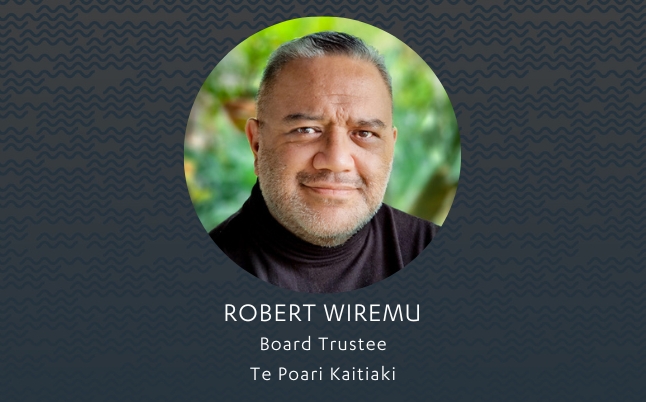Give a brief introduction about yourself.
My name is Robert. I was named after my dad, who’s is known either as Robbie or Ropata – depending on where he is and who he’s with. Don’t call me Robbie, and absolutely do not call me Bob!! One friend ever has called me Rob. I am a musician, I am Maori, I am queer, I’m a teacher.
What do you do outside of your work at SOUNZ?
In my daily grind, I teach at the University of Auckland. I get to utilise my skills in piano, and voice, and interests in history, and storytelling. I’ve been very focussed on diction – anatomy, pedagogy, expression. It fascinates me. I adore working with students – their curiosity motivates me, their problems challenge me, their journeys to musical maturity fascinate me.
What is one of your earliest musical memories?
My whanau always had music. Dad is the best party guitarist I know, mum sang, nan sang, papa sang. I showed an interest in piano quite young, so my grandparents sent me to lessons with the late Miss Pimm. She was sweet, and kind, and patient – woo, was she patient?! In the 70s, mum and dad helped with the cultural group in Ratana Pa, and I became obsessed with long poi. I think my piupiu could only fit around one thigh now.
What do you think makes the music of Aotearoa, New Zealand unique?
I believe that music and art and wine have ‘terroir’ – the ecosystem in which the roots are planted creates the flavour profile. We know when we’ve travelled and returned here that the light is different, the smells are different, our horizons vanish into mountains or ocean. I’m always a bit conflicted when I first hear the accent, but then I think … home.
Why SOUNZ (interpret this however you like)?
Why SOUNZ? SOUNZ is courageous about the discussions, that’s why SOUNZ. The openness to change and for reinvention is on the table. There’s no baggage about tradition or convention. Who are we, what do we want, how do we get there, now? As the late Moana Jackson, in his inimitable wisdom, “Incremental change is not change” to which I’ll add this: “E huri tō aroaro ki te rā, tukuna tō ataarangi ki muri i a koe - turn and face the sun, let your shadow fall behind you.”
